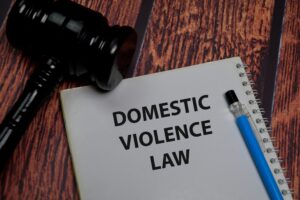Contents of this Post
ToggleAbuse takes many forms, from domestic violence and sexual abuse to child maltreatment and elder abuse. These can happen in various settings within domestic relationships, intimate partner relationships, or child care settings.
Each country has laws that provide multiple avenues for legal recourse to protect victims and deliver justice. Even so, navigating the legal landscape of abuse law can be overwhelming, especially when you’re already dealing with the trauma.
This guide will help you understand your rights, the legal frameworks in place, and the steps to take if you or someone you know is facing abuse. Here, we’ll explain what Australian laws say about abuse in a way that’s easy to understand.
Types of Abuse
By broad definition, abuse comprises actions that cause physical, psychological harm, or emotional harm to an individual. Regardless, each type carries unique legal implications and avenues for protection.
- Domestic and family violence: Encompasses physical abuse, emotional abuse, and coercive control within domestic relationships and intimate partner relationships. Australia has established various frameworks to address family violence, though specific legislation varies by state and territory.
- Child abuse: Includes physical abuse, child sexual abuse, exploitation of children, and neglect that can lead to negative child outcomes. The reporting of child abuse is mandatory for many professionals across the country, with obligations varying by jurisdiction.
- Elder abuse: Actions that cause harm to older Australians, including financial exploitation, neglect, and various forms of mistreatment.
Seeking Legal Recourse
The Australian legal system offers multiple pathways for victims to seek justice and safety. These options vary depending on the type of abuse and your location.
Legal Advice
Seeking legal advice from experienced professionals, including trusted Sydney law firms like Vocare, can ensure the best approach for your specific circumstances. These specialists can help you understand the complexities of family law while addressing specific challenges. They can also advise on potential compensation claims for emotional harm or psychological harm resulting from the abuse.
Protection Orders
Victims of family violence or intimate partner violence can apply for intervention orders through the Department of Justice. These orders—sometimes called restraining orders or apprehended violence orders, depending on your state—can prohibit the perpetrator from approaching you, contacting you, or entering certain premises.
A police officer can issue an interim protection order in urgent cases where there’s an immediate risk to your safety. This provides temporary protection while awaiting more permanent orders through the courts. They can also help you access emergency accommodation if staying in your home would put you at risk of further harm.
Specialised Assistance
Culturally appropriate legal services are available for Aboriginal and Torres Strait Islander communities. These services understand the unique contexts and needs of Indigenous Australians. The staff can guide individuals in tackling mainstream legal systems and traditional community approaches to resolving issues.
Relationships Australia, a national organisation, provides mediation and support services for families in crisis. Their professionals can help you understand your options and connect you with appropriate resources, including referrals to legal services. They work closely with the Attorney-General’s Department to ensure their services align with current legal frameworks.
Judicial Action
Law enforcement and the courts become involved when abuse reaches the threshold of criminal behaviour. Courts handle criminal cases involving sexual abuse or child prostitution. The exploitation of children is treated particularly seriously in the Australian legal system, with heavy penalties for offenders.
At the same time, cases involving international child abduction fall under international treaties, with the Commonwealth of Australia advocating for child safety across borders.
The Department of Justice provides resource sheets and guidance on navigating the court process for those unfamiliar with legal proceedings. These materials help you understand what to expect and how to prepare for court appearances. It reduces some of the stress involved in seeking justice.

Child Abuse Reporting
The safety of children is paramount in Australian law, which is why robust reporting mechanisms exist across the country. When you suspect a child is experiencing harm, you’re not just morally obligated to act. You’re legally required to do so in many cases.
Schools, Child Care Centres, and Foster Care Services Must Report Suspected Child Maltreatment to Authorities
This obligation extends to teachers in government schools and non-government schools, as well as professionals in family daycare and early childhood education settings. Failure to report can result in professional consequences and potential legal liability.
Mandatory Reporting Laws Differ by State
For example, Western Australia and Northern Territory laws require reporting on reasonable grounds of suspected abuse. The Victorian Law Reform Commission recommendations, meanwhile, focus on streamlining child protection laws to ensure consistency across education settings.
The Process Typically Involves Child Protection Authorities
Once you make a report, trained professionals will assess the situation and determine what interventions might be necessary to ensure the child’s safety. This could range from providing support services to the family to removing the child from the home if required to prevent further harm.
Certain Punishments Can Trigger Mandatory Reporting
The Department of Social Services provides guidance on the distinction between reasonable discipline and actions that may constitute abuse. It helps parents understand appropriate behaviour management practices.
Relaying Elder Abuse
You may need to work with both health services and legal authorities when reporting elder abuse. For instance, the Tasmania Law Reform Institute has developed specific recommendations for addressing the abuse of older Australians. TLRI recognises that this form of abuse often involves complex family dynamics and potential mental disorders in either the victim or perpetrator.
Continuing Reforms in the Legal System
Australia is constantly studying its legal frameworks to propose and enact enhancements. The Attorney General often requests the Australian Law Reform Commission to conduct inquiries and make recommendations on law reforms. State-based law reform bodies like the Victorian Law Reform Commission and Tasmania Law Reform Institute do the same. In addition, national initiatives like the Royal Commission into Institutional Responses to Child Sexual Abuse have led to significant policy changes across the country.
Recent policy reform efforts by the Australian Institute of Family Studies and Attorney-General’s Department focus on strengthening penalties for offenders and improving support for victims. Starting last year, for example, coercive control has become a criminal offence in New South Wales, representing a significant shift in how domestic violence is understood and addressed.
Final Thoughts
Moving forward after experiencing abuse can be complex, but knowing your rights and legal options can empower you to take action. No matter how complex your situation may be, there are legal pathways for protection and justice.
If you or someone you know is affected, seek legal advice from professionals, report incidents to authorities, and utilise available resources. With continued policy reform and strong legal frameworks, Australia remains committed to protecting individuals from harm and ensuring justice for victims.

